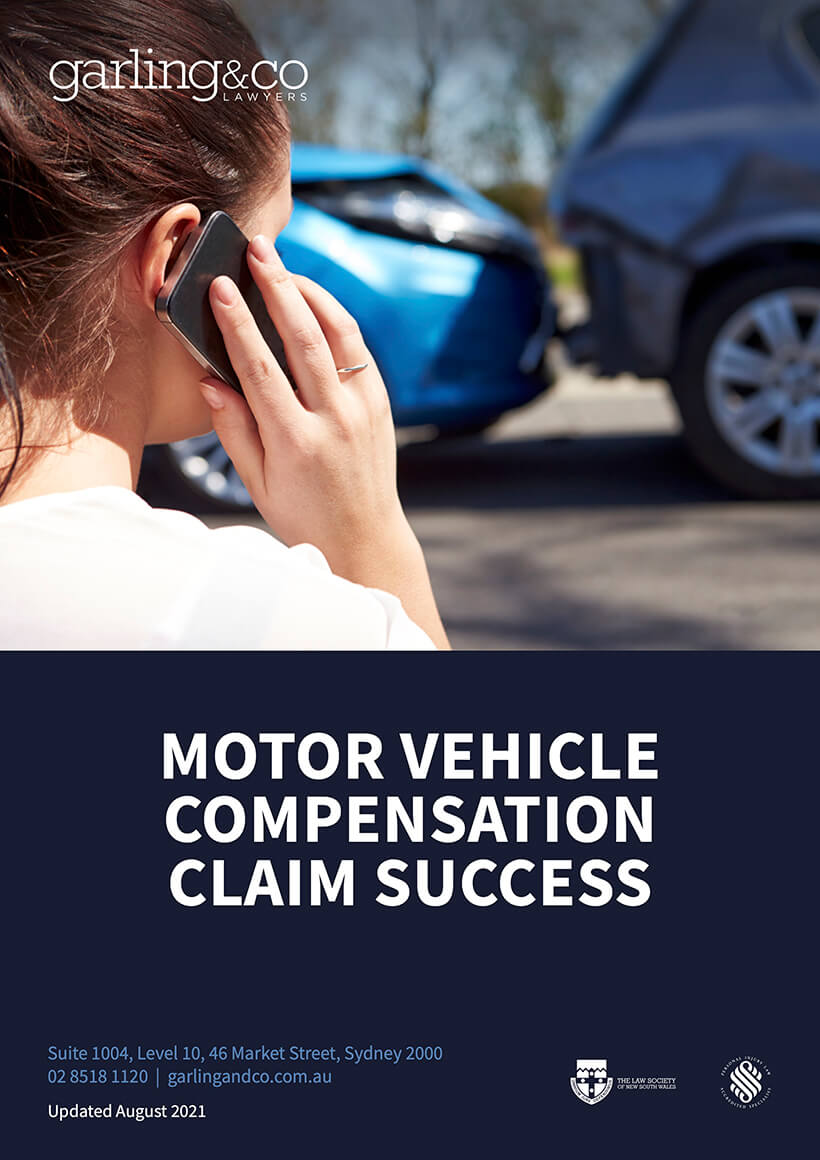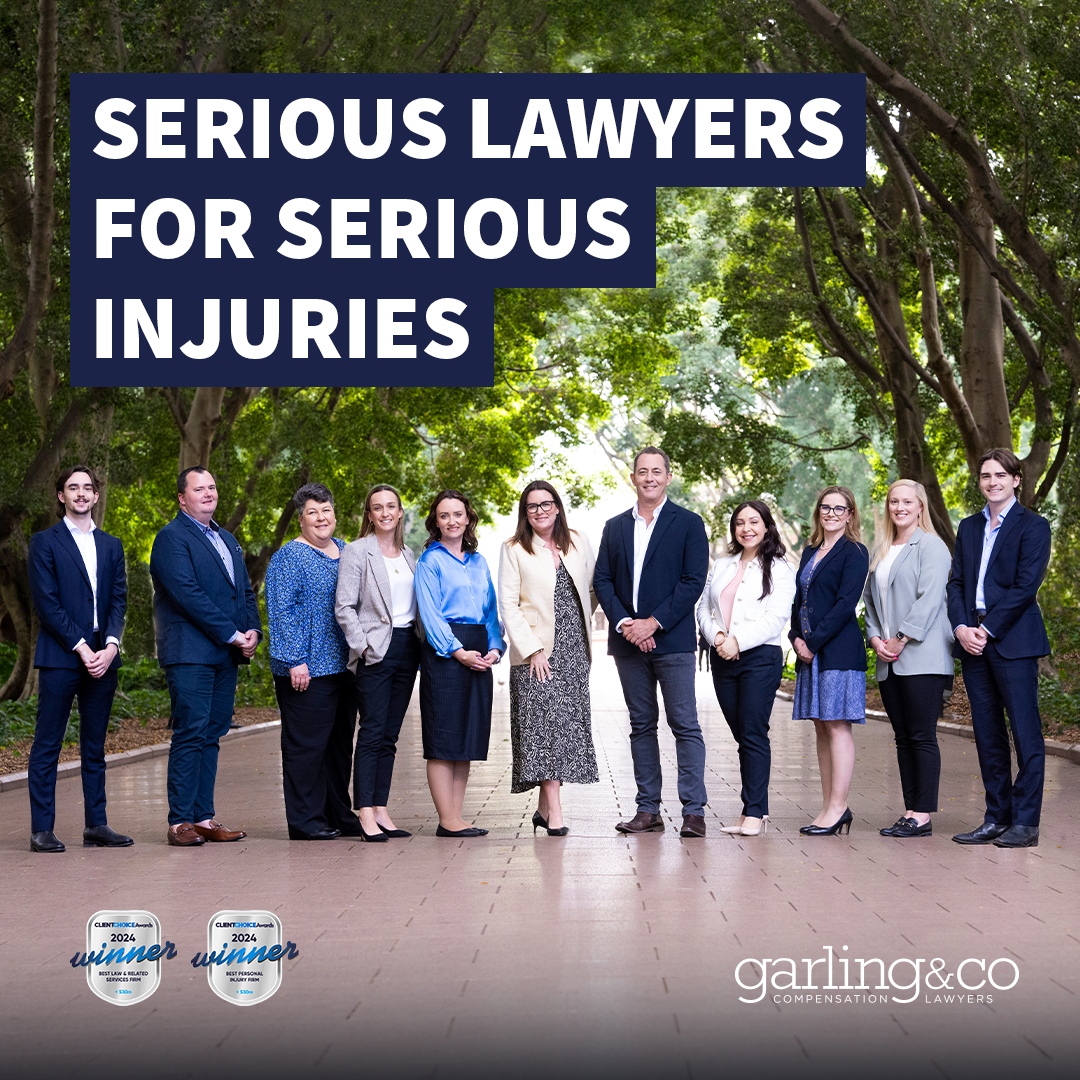Introduction
By reading this guide, you have separated yourself from other claimants who do not educate themselves and make costly errors when claiming compensation for the pain and suffering they’ve sustained from a car accident.
People sometimes think that making a claim is a relatively straightforward process and they don’t need to seek legal advice. But that is a huge risk. You only get one chance to obtain compensation and if you don’t get it right, you won’t receive everything you’re entitled to.
Insurance companies and insurance investigators are experienced professional litigators who know how to defend and reduce compensation claims. They know what to look for from the beginning and the questions to ask that will help them put holes in your claim and reduce the amount of compensation they need to pay you. You need to understand how the system works and know what the CTP insurer you’re dealing with will do to ensure they have the upper hand when it comes to reducing your claim.
Six most important things you need to know when making a claim for compensation under the Motor Accidents Injuries Act:
1. You have just 28 days to claim statutory benefits.
Anyone who sustains an injury in a motor vehicle accident, no matter who is at fault, is entitled to receive weekly payments for lost wages and medical expenses for up to six months from the car accident date.
You can claim if you are injured as a driver, a passenger, a pedestrian, a motorbike rider or a cyclist. Anyone injured by a motor vehicle is entitled to claim for car accident compensation. You can even claim if the motor vehicle is unidentified or unregistered, such as in a hit and run; these claims are made against the “nominal defendant”.
To claim compensation for injuries sustained in a motor vehicle accident, start by completing an Application for Personal Injury Benefits form. You will find the form on the State Insurance Regulatory Insurance (SIRA) website at www.sira.nsw.gov.au
You should complete the Application for Personal Injury Benefits form within 28 days of your motor vehicle accident. After it’s been received, the insurer will then have to immediately start paying your weekly wage and medical expenses. You can complete your application within three months of the motor vehicle accident, but the payments will only start from the date you submit the form.
To make an application, you need to have the following information:
- A police event number.
- A medical certificate from your GP that specifies your injuries and your fitness for work.
- Evidence of your income if you are making a claim for loss of income.
- Receipts for medical treatments you’ve paid for that you want to be reimbursed.
However, if the vehicle you were driving was uninsured and the accident was mostly your fault, you are not entitled to claim statutory benefits. You also cannot claim if you were charged with or convicted of a serious driving offence associated with the accident.
Additionally, you cannot receive car accident compensation if you are also eligible to receive Workers Compensation. In these circumstances, you will receive Workers Compensation instead of the benefits available under the Motor Accidents Act – not both.
2. To claim statutory benefits, the motor vehicle accident must be “verified”.
Verification means that the motor vehicle accident is reported to the NSW Police within 28 days of the event. This is extremely important because if the accident is not reported within 28 days, you may be prevented from claiming statutory benefits to start with, as well as common law benefits later on.
Usually, if the accident is serious enough, the police will attend the scene of the accident. You will be given a police Event Number. You need this Event Number to make a claim.
If the police did not attend the scene of your accident, you need to contact the NSW Police to report the accident and obtain an Event Number. You can report injuries in a car accident to the police by calling their assistance line on 131 444. Again, make sure you obtain an Event Number.
Reporting the accident to the police is a critical step in proving that the accident was genuine, and it prevents people from making exaggerated or false traffic accident claims.
3. When will payment of weekly payments and medical expenses cease under the Statutory Benefits Scheme?
After you have claimed statutory benefits, the insurer will start paying weekly compensation payments and medical expenses if you cannot work for up to six months/26 weeks.
At around the four-month mark, the insurer will then make a decision about the following:
- Whether the motor vehicle accident was wholly or predominately your fault – or the fault of another driver; and
- Whether you have a “minor injury” as defined by the Motor Accidents Injuries Act.
You are then entitled to continue to receive weekly payments after the initial 26 weeks, but only if the insurer decides that:
- The accident was not wholly or mostly your fault; and
- That you do not have a minor injury.
A “minor injury” is defined as one or more of the following:
- A “soft tissue” injury;
- A “minor psychological or psychiatric” injury.
A soft tissue injury is defined as:
- “An injury to the tissue that connects supports or surrounds other structures or organs of the body (such as muscles, tendons, ligaments, menisci, cartilage, fascia, fibrous tissues, fat, blood vessels and synovial membranes) but not an injury to nerves or a complete or partial rupture to tendon ligaments, menisci or cartilage.”
The Motor Accident Regulations add the following:
- “An injury to a spinal or nerve root that manifests in neurological signs (other than radiculopathy) is included as a soft tissue injury for the purposes of the Act.”
A minor psychological or psychiatric injury is defined as:
- “A psychological or psychiatric injury that is not a recognised psychiatric illness.”
A whiplash-type injury to your neck or back is considered a soft tissue injury. However, if you have any tendon damage, ligament damage, scarring, head injury, neurological injury or similar, this is a “non-minor” injury.
When it comes to a psychological injury, an adjustment disorder (ie. an emotional or behavioural reaction to a stressful event or change in a person’s life) is not recognised as a psychological illness. That means you would need to demonstrate that you have PTSD from the motor vehicle accident to prove that your injury is non-minor.
It is the insurer that decides whether you have a minor injury, a major injury, or none at all. If you disagree with the insurance company’s decision, you should immediately contact an accredited specialist in personal injury law. That lawyer will be able to help you determine if your injuries are minor or non-minor and help you make an application to the Personal Injury Commission to challenge the insurer’s decision.
4. Make sure your doctor records all your injuries and problems from the motor vehicle accident.
It is critical that after any injury in a car accident, you consult your general practitioner as soon as possible and ensure they record all the injuries, pain and symptoms you’re experiencing, no matter how minor.
Often, hospitals and doctors concentrate on the most significant injury at the time of presentation and ignore or play down other aches and pains. Minor injuries can sometimes get worse, and if your doctor does not record them, this can cause problems later in a claim. For example, you are involved in a car accident and you sustain a neck injury as a result. But you also have a niggling pain in your shoulder – that you do not mention and the GP does not record. The insurer is sure to say that you never sustained an injury to your shoulder in the accident. Unless it is recorded in your general practitioner’s notes within days of the accident, this will be a problem later.
Make sure your GP records all injuries, niggles, aches and pains in all areas of your body you may have sustained because of the car accident. These can be also recorded in your physiotherapist’s notes, in hospital records, or in the records of any other medical professional you consult in regard to the treatment of your injuries.
To confirm the injuries you claim to have sustained, the insurance company or court will review all the medical records associated with your injuries and treatment. If those records don’t list all the locations of your pain, this may limit your claim for car accident compensation.
Most people are stoic and don’t like to complain. However, when it comes to making car accident claims, it’s vital that every injury detail is noted by your GP and your other health care providers. Give them the full picture of your injuries, and take the time to make sure they record everything fully and correctly.
5. Claiming for Common Law Damages – what is this?
You have a right to make a claim for common law damages (ie. lump sum compensation) for your injuries if:
- The insurer has accepted, or it has been determined that you have sustained, a non-minor injury; and
- The accident was not wholly or predominately your fault.
If the insurer accepts both of these aspects in your favour, you become eligible to receive common law damages. This entitles you to make a claim for lump sum compensation for two types of damages:
- Damages for “non-economic loss” – ie. pain, suffering and reduced quality of life; and
- Damages for “economic loss” – ie. past and future loss of income.
Non-Economic Loss
You can only claim damages for non-economic loss if you are assessed as having a whole person impairment of more than 10%. The assessment of whole person impairment is either agreed with the CTP insurer or determined by an independent doctor appointed by SIRA (www.sira.nsw.gov.au).
Economic Loss
You can claim a lump sum amount for past and future loss of income (including superannuation) if your injury prevents you from earning as much money as you did before the accident.
Time limit
You need to make a claim a claim for common law damages within 20 months following the car accident. You have a maximum period of 3 years from the date of the accident to file a claim in the Personal Injury Commission.
If you do not make a common law claim for damages within that time frame, the weekly payments will stop.
The assistance of a lawyer is strongly recommended to properly complete an Application for Common Law Damages form and submit it to the CTP insurer. Once that form is submitted, the insurer will continue to provide you with weekly payments and reimbursements for your medical expenses until your common law claim is finalised.
If you think you have a claim for common law damages, you should consult with an accredited specialist in personal injury law as soon as possible after your motor vehicle accident.
6. Choose the right lawyer to represent you in your claim.
Selecting the right lawyer is the most critical decision you can make in any compensation claim. You have one chance to obtain proper compensation and secure financial security for yourself and your family. If you choose the wrong lawyer, things could go very wrong.
The lawyer you choose to support you in your claim and who will be handling your case on a day-to-day basis should be accredited by the Law Society of NSW as a specialist in motor accident compensation law.
Your lawyer should be able to tell you at your very first consultation what your chances of success are, how much your case is worth, and how long it will take to resolve – at least as an estimate.
In large law firms, your first meeting will often be with a partner who is an accredited specialist, but who may not be the lawyer who personally handles your claim. Instead, your claim will be managed by a junior lawyer who is not as experienced and is essentially learning their job at the cost of your claim.
You deserve the best lawyer to work on your behalf; you’ll only get one chance to obtain proper compensation.
You also need to be aware of how your lawyer will charge you for legal costs. Many lawyers charge an hourly rate. This, in our view, can cause a conflict of interest between you and your lawyer. If the lawyer is charging by the hour, it’s to their benefit for your case to be as complicated as possible and to go on for as long as possible so they can charge you for more work hours. You on the other hand will want your case to be straightforward, clear-cut and finalised quickly with the best possible result. Therefore, we strongly recommend you find a lawyer who charges a lump sum amount based on stages of preparation rather than on an hourly basis.
In summary
Thank you for reading this far. As outlined above, the most critical decision you can make as far as securing accident compensation is choosing the right lawyer to represent you. To learn even more, check through our guide, “How to Choose the Best Compensation Lawyer for your claim.”
When it comes to motor vehicle accidents and accident compensation, give yourself the best chance of success by choosing an automobile injury lawyer who:
- Specialises in personal injury law.
- Is an accredited specialist in personal injury law by the Law Society of NSW.
- Can tell you your chances of success and give you an estimate of how much compensation you could expect to receive at the very first consultation.
- Clearly explains their legal fees and how they will be charged.
- Communicates with you in a clear and straightforward manner. They answer your questions, and you feel trust in their answers.
- Isn’t simply convenient to your home or workplace. The most effective lawyers are predominantly located in the Sydney CBD close to the District and Supreme courts.
- As much as is possible, try not to choose a lawyer based simply on price. While it’s true that an experienced lawyer will charge more than a less experienced lawyer, it’s also true that they will achieve a far better result and get you the best financial outcome. An inexperienced lawyer will be charging you to learn on the job and is, therefore, more likely to make costly mistakes.
- Don’t just go for the first lawyer you find. All lawyers are not the same. There are good lawyers and not-so-good lawyers. With so much at stake, consider interviewing several lawyers before deciding who you feel most comfortable appointing to represent you.
If you would like to know more about hiring an expert compensation lawyer, how to pick a lawyer or any legal advice in relation to a motor vehicle accident injury claim please do not hesitate to contact us as follows;
- Complete our FREE case assessment form HERE
- Email us at info@garlingandco.com.au
- Give us a call on (02) 8518 1120 and talk to our specialised lawyers
We also suggest you download our guide “How To Choose a Compensation Lawyer” where we explain No Win No Fee cost agreements as well as outline what you should look for in a lawyer who is an accredited specialist in personal injury law.
















